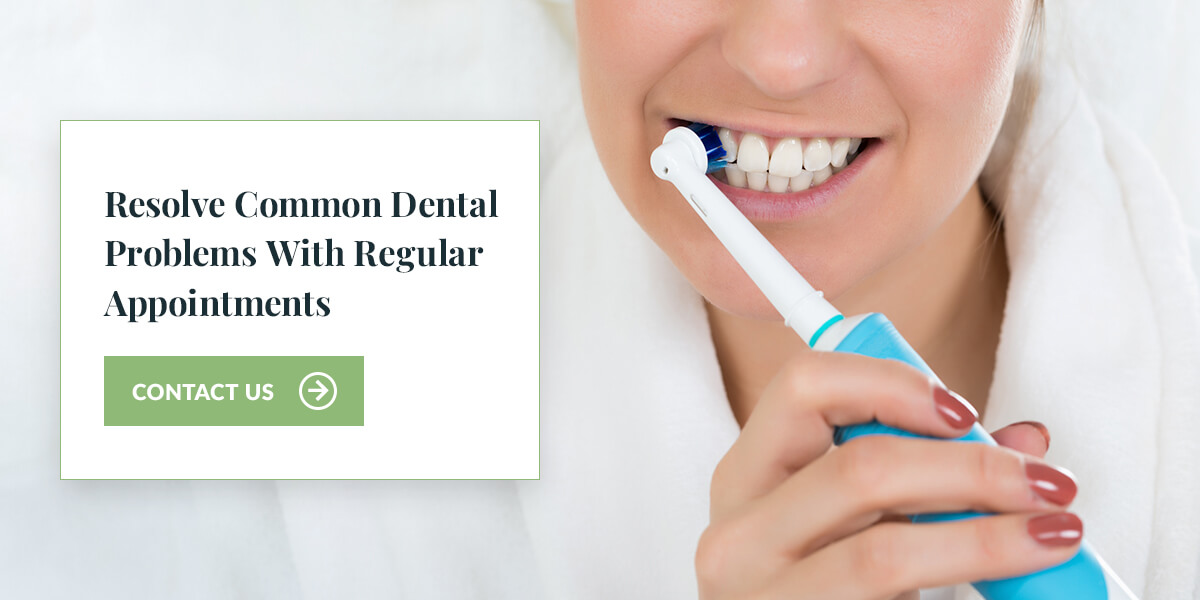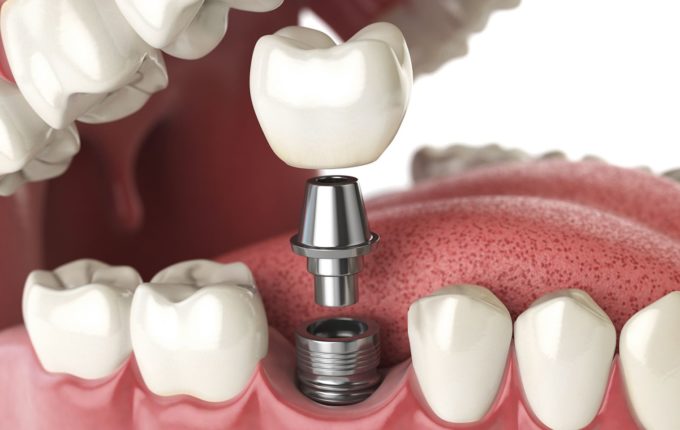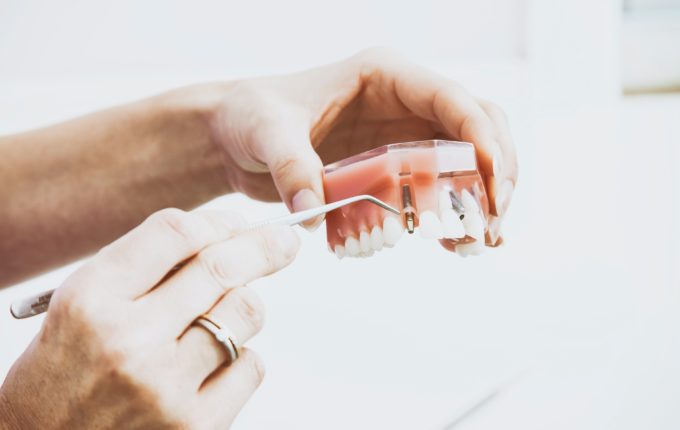10 Common Dental Problems and Treatments
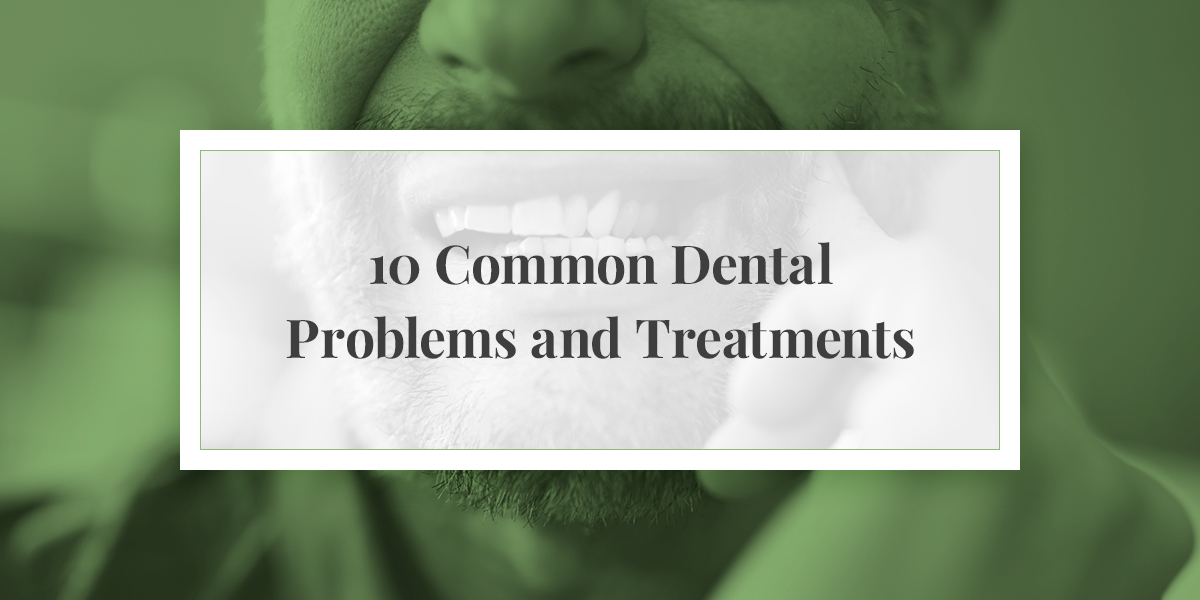
Many everyday dental problems could cause feelings of discomfort or pain in your mouth. Learning about these frequent issues can help you identify them and prevent them in the future. This list of dental problems and treatment recommendations can boost adults’ and children’s dental health.
1. Tooth Decay
Tooth decay is gradual damage to teeth surfaces, also called cavities. This dental problem is widespread in adults and children. Cavities occur when tooth enamel breaks down due to bacteria overexposure. Bacteria develop plaque and produce harmful acids that degrade your tooth enamel. If you frequently expose your teeth to acid, you could lose protective minerals and get cavities.
Kids and adults can limit cavity development with these actions.
- Following proper dental hygiene: Following appropriate dental care processes can reduce cavities. The American Dental Association advises people to brush their teeth at least twice a day for two minutes at a time. The ADA also recommends using fluoride-based toothpaste and other products to prevent tooth decay.
- Avoiding sugary foods: Sugary and starchy foods are more likely to harm your teeth. Limit candy, potato chips, and soda, which dry your mouth. Often, tooth decay in children is due to eating too many sweets.
- Frequently visiting the dentist: Regular dental appointments help you identify and address tooth decay more quickly. Dental hygienists and dentists check for early signs of cavities and can apply fluoride treatments.
2. Gingivitis
Gingivitis is a mild form of gum disease caused by a buildup of plaque deposits. It targets your gums, the tissues that protect and support your teeth. The infection leads to redness and irritation around your gums, which becomes painful if not treated.
Gingivitis is common in adults and adolescents. Some factors increase your risk, such as:
- Hormonal changes
- Poor dental hygiene
- Inadequate nutrition
- Specific medications or medical conditions
The best way to treat gingivitis is to remove the plaque. Your dentist can thoroughly clean your teeth by using various tools to loosen and dislodge the plaque. Dental professionals can also advise you on oral hygiene techniques to reduce the risk of gingivitis.
3. Missing Teeth
Another common dental issue is having one or more missing teeth. Patients can have missing teeth for various reasons.
- Hypodontia: Hypodontia is a medical condition that occurs when people are born without one to five teeth. Anyone can be born with hypodontia, though it’s commonly genetic. The condition can affect teeth in any mouth area.
- Injuries: Patients can also lose teeth due to accidents in car wrecks, sports injuries and other types of trauma.
- Gum disease: Gum disease can cause teeth and bones to decay over time, often resulting in teeth loss.
Missing teeth make it more difficult to chew food and create an increased risk for other dental issues. Dentists treat the condition with options like:
- Dental implants
- Braces or other orthodontics
- Dental bridges
4. Yellow Teeth
Yellow or discolored teeth are another frequent dental problem for children and adults. Some factors can discolor the natural white by harming your enamel.
- Diet: Specific foods and beverages can cause tooth discoloration. For instance, foods with high levels of tannins can wear down your tooth enamel faster. Red wine, coffee, and soda are among the leading causes of teeth discoloration.
- Smoking: Smoking causes yellow and brown stains on your teeth.
- Disease: Specific medical conditions or treatments can increase the risk for yellow teeth.
Fortunately, kids and adults can resolve yellow teeth with various strategies. Your dentist can provide professional teeth-whitening services to remove discolored enamel. In addition, you can use whitening toothpaste or strips at home to limit discoloration.
5. Halitosis
Halitosis is a preventable condition characterized by bad-smelling breath. It can be a brief or persistent issue, depending on the patient and cause. You might develop halitosis because of factors like these.
- Eating certain foods: Some strong-smelling foods like garlic and onion impact your breath after eating them.
- Poor or incorrect dental hygiene: Failure to brush your teeth, floss, or visit the dentist can increase your halitosis risk. Food particles remain in the mouth and develop a smell over time.
- Dry mouth: Bad breath also results from dry mouths, which have limited saliva production. This condition restricts the mouth’s capacity to clean itself.
Adults and children can treat halitosis with regular oral hygiene and dentist visits.
6. Tooth Sensitivity
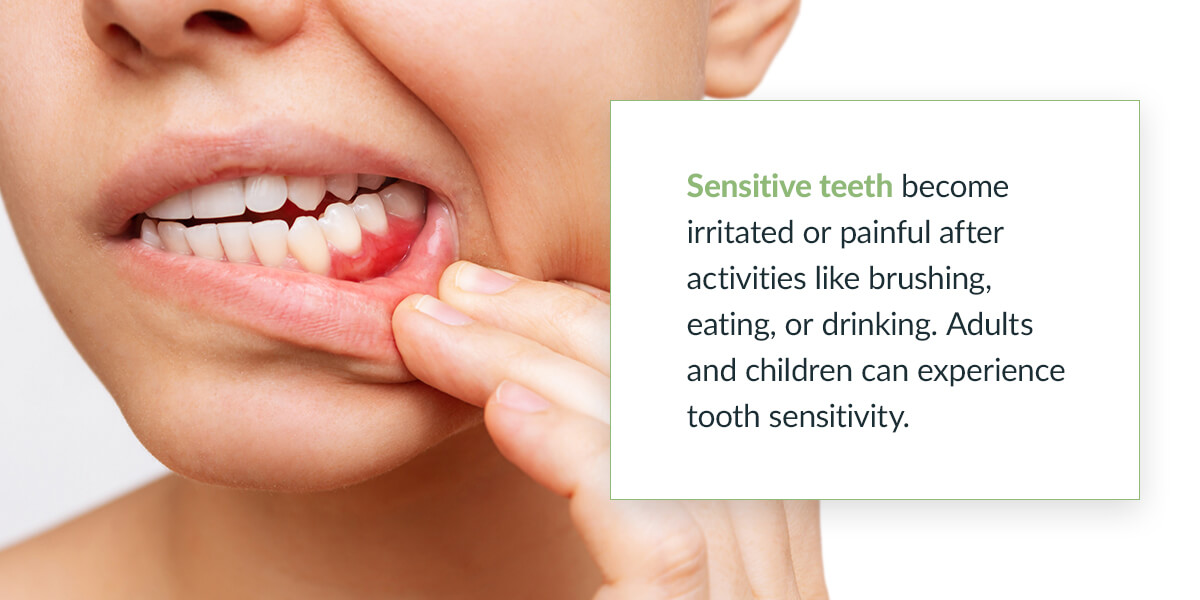
Sensitive teeth become irritated or painful after activities like brushing, eating, or drinking. Adults and children can experience tooth sensitivity. Tooth enamel wear or exposed roots can cause your teeth to become more sensitive. Other dental issues like cavities or gum disease can create teeth irritation.
Your dentist can help you identify the sensitivity cause and recommend treatment steps. They might advise desensitizing toothpaste or fluoride treatments to strengthen enamel. In severe cases, your dentist might recommend a root canal, which removes inflamed pulp from your teeth.
7. Cracked Teeth
Teeth can crack because of injuries or general wear. You might not notice a cracked tooth immediately — symptoms like extreme pain while chewing or after exposure to harsh temperatures are warning signs. Significant cracks can create a gum infection, making it essential to get treatment quickly.
The best way to fix a cracked tooth is by visiting your dentist. Dentists’ methods to treat cracked teeth depend on the type and location of your injury. Depending on the severity, you might need to remove the tooth or receive endodontic surgery.
8. Receding Gums
Gum recession is a form of gum disease. It occurs when your gums pull away from your teeth, which exposes the roots and causes irritation. Children and adults can experience receding gums due to causes like:
- Aggressive brushing
- Genetics
- Poor oral hygiene
- Smoking
You cannot reverse gum recession, but you can take preventive measures that stop it from worsening. Dentists can diagnose the cause and advise the best treatment plan. They might suggest surgery, antibiotics, orthodontics, or other options.
9. Misaligned Teeth
Many patients have misaligned teeth. Depending on the severity, this issue can make it difficult to chew, breathe, or speak. Often, misaligned teeth are hereditary, passed down through the generations. Children can also develop misaligned teeth if they suck on their thumb or a pacifier past age 3.
Dentists can treat misalignment with surgery or tooth removal. They commonly refer these patients to orthodontists, who fit patients with braces.
10. Enamel Erosion
Enamel erosion happens when acid wears away your tooth enamel, exposing the next tooth layer. This condition occurs gradually, breaking down your tooth surfaces and edges. Enamel erosion increases teeth sensitivity, making regular eating and drinking more painful. Acidic foods and drinks like fruit juice, alcohol, candy, and carbonated drinks can cause erosion, as can health issues like eating disorders or diabetes.
Erosion treatment varies by cause and severity. Your dentist inspects the area and proceeds with the best-matching treatment. They might complete a filling, crown, or dental bonding. You can limit further erosion by reducing your consumption of acidic foods and following proper oral hygiene methods.
Other Dental Conditions
In addition to these common dental problems, patients can also develop rarer conditions. Dentists can also treat more uncommon issues like:
- Oral cancer: Oral cancer impacts the oral cavity, which includes your teeth, gums, lips, tongue, and mouth interior. It occurs when the DNA in oral cells mutates, which can cause tumors to grow in the mouth or other body areas. Factors that increase the risk of oral cancer include smoking and excessive alcohol use. You can treat oral cancer with surgery, radiation therapy, or chemotherapy. Patients can keep their risk low by avoiding tobacco and alcohol and keeping regular dental appointments.
- Anodontia: Anodontia is a rare condition that causes the absence of all teeth. Dental professionals use dental implants and dentures to treat the condition.
Resolve Common Dental Problems With Regular Appointments
Routine dental appointments are crucial for oral health. Your dentist can identify these common teeth problems and suggest the best treatment paths.
If you experience oral pain or suspect you have one of these dental issues, make an appointment with 209 NYC Dental today. Book an appointment online or contact us today at 646-846-9649.
 Our History
Our History
 Our Providers
Our Providers
 About Us
About Us
 Blog
Blog
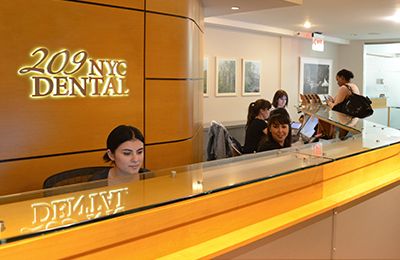 Contact us
Contact us
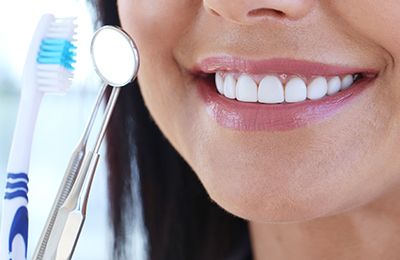 Diagnostic & Preventive
Diagnostic & Preventive
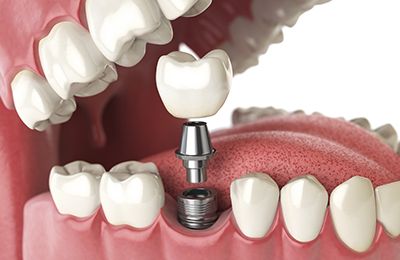 Implant Dentistry
Implant Dentistry
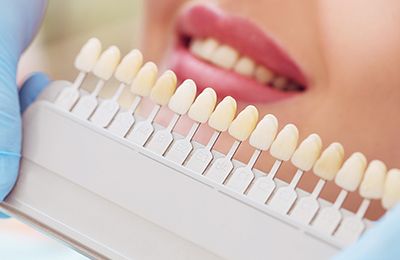 Cosmetic Dentistry
Cosmetic Dentistry
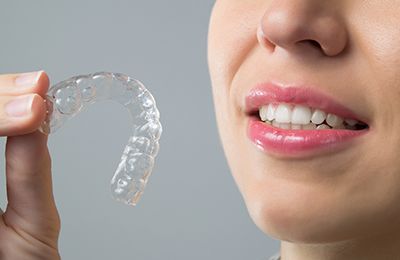 Clear Braces
Clear Braces
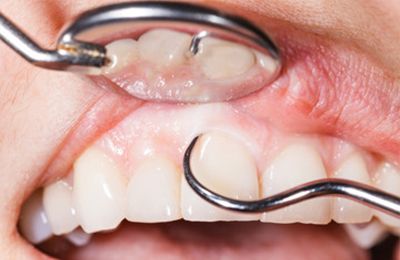 Periodontics
Periodontics
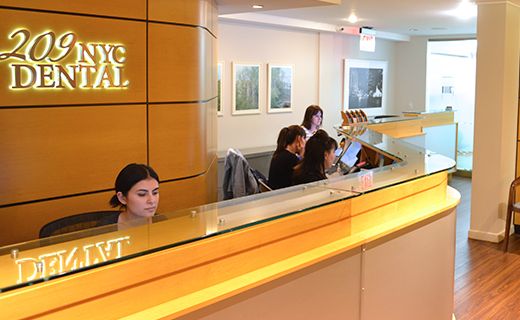 Patient Forms
Patient Forms
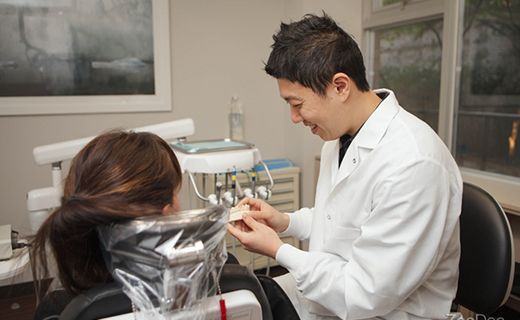 Payment Information
Payment Information
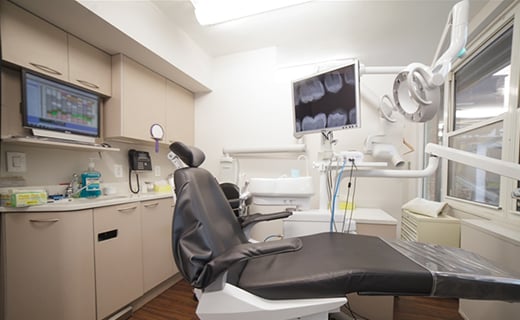 Insurance Options
Insurance Options
 CareCredit Dental
CareCredit Dental
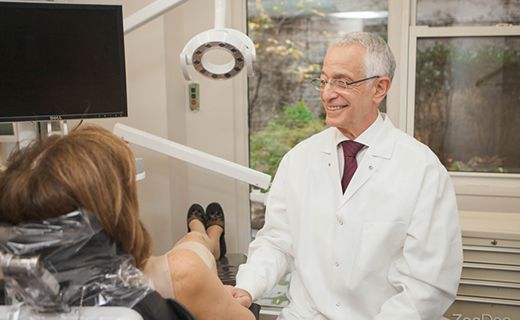 Appointment Policy
Appointment Policy
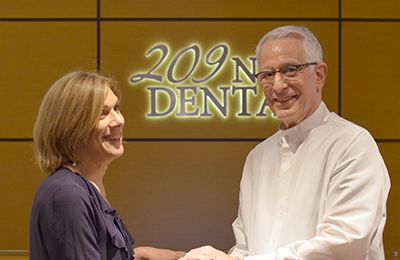 Free Consultation
Free Consultation
 Complimentary Teeth Whitening
Complimentary Teeth Whitening
 Teeth Whitening
Teeth Whitening
